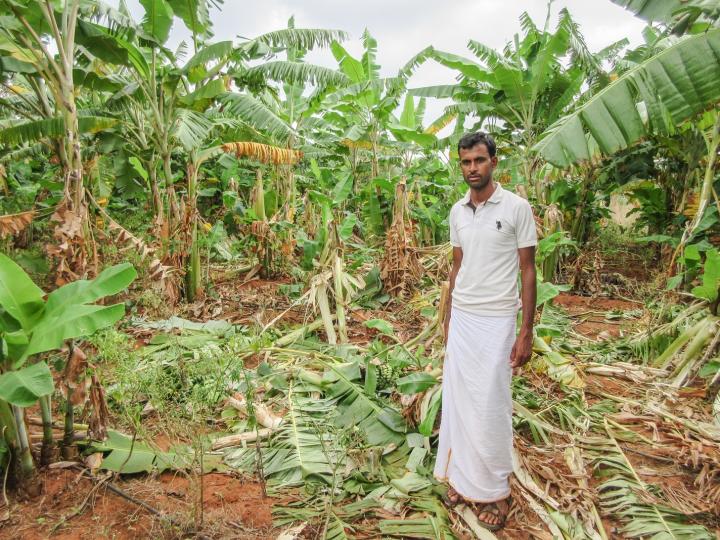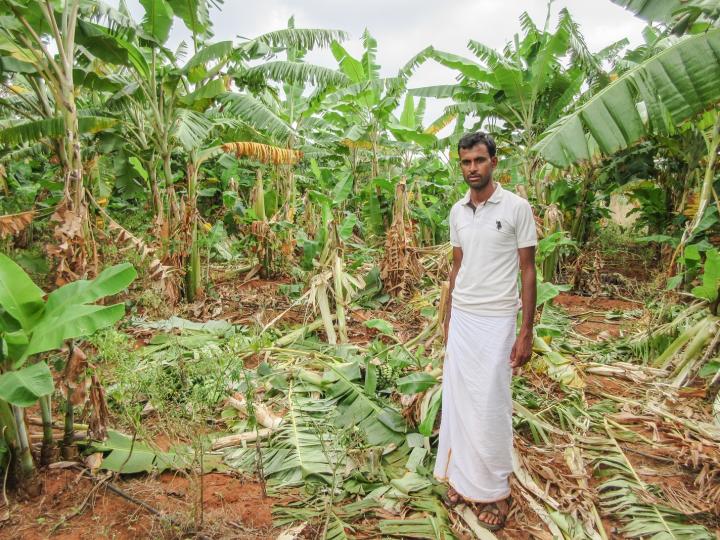
Credit: Krithi Karanth
Bengaluru, India (June 27, 2017) — There is an urgent need to strengthen human-wildlife conflict management across India, as up to 32 wildlife species are damaging life and property in this nation of 1 billion people, according to a recent study published in the July 2017 edition of Human Dimensions of Wildlife.
The researchers are calling for the identification of effective prevention techniques, strengthening existing compensation schemes, and an open inclusive dialogue between local communities, governments, and conservationists.
The authors of the study, "History, Location, and Species Matter: Insights for Human-Wildlife Conflict Mitigation," are Dr. Krithi Karanth, conservation scientist with the Wildlife Conservation Society and Sahila Kudalkar, research associate with the Centre for Wildlife Studies.
The study examined the patterns of human-wildlife conflict and mitigation use by 5,196 families from 2011 to 2014 from 2855 villages neighboring 11 wildlife reserves across western, central, and southern India. The study was designed to help inform better policies to mitigate human-wildlife conflict.
Some of the results of the research included:
Of the more than 5,000 households surveyed around 11 reserves in India, crops were lost by 71% of households, livestock by 17%, and human injury and death were reported by 3% of households.
Rural families use up to 12 different mitigation techniques to protect their crops, livestock and property. Night-time watch, scare devices, and fencing are the most common mitigation techniques used by rural families in the periphery of reserves.
Families near reserves in Karnataka and Madhya Pradesh were most likely to use mitigation. In recent years, these states have recorded high levels of damage by wildlife, and are among states that provide the highest compensation payments across India. In contrast, families in Rajasthan were least likely to protect crops and property.
Across wildlife reserves, people reported average crop losses amounting to INR 12,559 (US$194) , and INR 2883 (US$44)of livestock losses annually. Such losses constitute a significant chunk of India's rural economy, where the majority of the population earns less than INR 5000 (US$77) per month.
Said Dr. Karanth: "Resolving human-wildlife conflict requires revisiting the goals of conservation policies and investments by people and organizations. This is especially true with respect to effort and money deployed associated with mitigation and protection. People may be better served by deploying early warning, compensation and insurance programs rather than by focusing heavily on mitigation."
Said Sahila Kudalkar, "Combined with high poverty, and low awareness regarding government compensation, such families may be most vulnerable to impacts of wildlife damage upon their livelihoods."
###
The study was supported by DST Ramanujan Fellowship, National Geographic Society, National Science Foundation, and Rufford Foundation.
WCS (Wildlife Conservation Society)
MISSION: WCS saves wildlife and wild places worldwide through science, conservation action, education, and inspiring people to value nature. To achieve our mission, WCS, based at the Bronx Zoo, harnesses the power of its Global Conservation Program in nearly 60 nations and in all the world's oceans and its five wildlife parks in New York City, visited by 4 million people annually. WCS combines its expertise in the field, zoos, and aquarium to achieve its conservation mission. Visit: newsroom.wcs.org Follow: @WCSNewsroom. For more information: 347-840-1242.
Media Contact
Stephen Sautner
[email protected]
718-220-3682
@TheWCS
http://www.wcs.org
Original Source
https://newsroom.wcs.org/News-Releases/articleType/ArticleView/articleId/10211/Study-Calls-for-Urgent-Need-for-Improved-Human-Wildlife-Conflict-Management-Across-India.aspx http://dx.doi.org/10.1080/10871209.2017.1334106
############
Story Source: Materials provided by Scienmag





